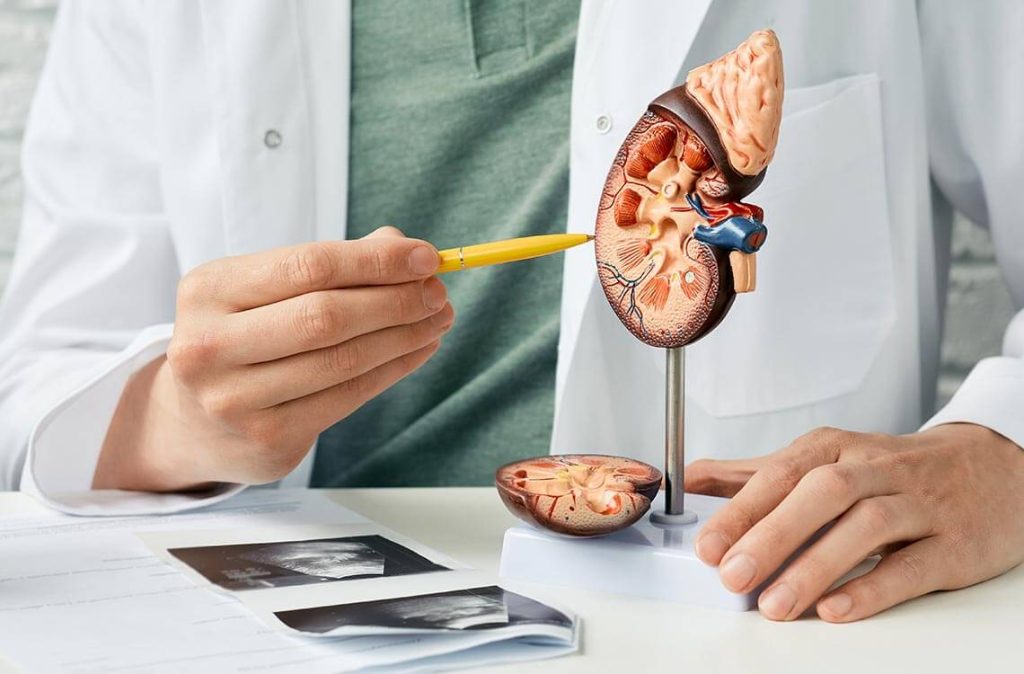Kidney cancer is a rare disorder that affects children (as well as adults). It attacks the body’s main filtration system, resulting in various health complications.
In honour of Childhood Cancer Awareness Month, Motherhood Story aims to spread awareness on the topic of childhood cancer.
We had the privilege of speaking with Dr Eni Juraida, a Consultant Paediatrician and Paediatric Haematologist & Oncologist at Sunway Medical Centre, who generously shared her expertise and sheds light on the subject of childhood cancer.
Keep reading to know more on her expert insights regarding childhood kidney cancer.
What are the current statistics in Malaysia for childhood kidney cancer?
Overall incidence of cancer is 77.4 per million children under age of 15 years. Unfortunately, I don’t have the breakdown for kidney tumours.
What are the common symptoms of childhood kidney cancer?
Kidney cancer has a wide range of symptoms. The main ones include lump or swelling in the abdomen, abdominal pain, bloody urine, poor appetite, loss of weight, cough and difficulty in breathing (if the tumour has spread to the lungs).
Kidney cancer can also cause high blood pressure in the body, leading to symptoms such as headache.
How is childhood kidney cancer diagnosed?
From symptoms and physical signs elicited by doctor, if suspected, the child then has to undergo a few tests:
- blood test
- radiology
- ultrasound of abdomen
- CAT Scan
If all indications point towards a kidney tumour, a definitive diagnosis can be made through surgery.
This involves doing a biopsy or cutting out a small piece of the affected kidney if the tumour is too large to be removed upfront.
Once the tumour is removed, it will be sent to a pathologist who will closely examine the tissue under a microscope to determine if it is a ‘Wilms tumour’, which is the most common type.
The pathologist will also look for any ‘bad’ or unfavourable features in the tumour cells that may affect the outcome or prognosis of the patient.
This diagnosis is important in determining the appropriate treatment plan for the patient and providing an accurate prognosis.
What are the treatment options for childhood kidney cancer?
The first treatment option for kidney cancer is surgery.
The affected kidney is no longer functioning and needs to be removed.
The second treatment option is chemotherapy.
This treatment involves giving drugs to kill any remaining cancer cells or shrink the tumour in cases when it is too big, such that surgery can be carried out safely.
The third treatment option is radiotherapy.
This treatment involves using high dose radiation to kill the cancer cells, in selected cases
What are the possible side effects of treatment for childhood kidney cancer?
Cancer treatment has its own side effects, which can be more severe for children.
Here are some of the typical down sides of cancer therapy:
- hair loss
- loss of appetite
- fatigue
- nausea and vomiting
- increased risk of infection
- effect on function of liver, heart
- lowers blood cells i.e. red blood cells, white blood cells and platelets
- oral ulcers
- Radiotherapy—redness, irritation, dryness of the skin
- nausea and vomiting
- difference in growth of tissues
How important is early detection in the prognosis of childhood kidney cancer?
Early detection is important for all cancers, not just kidney.
With early detection a tumour can be caught at an earlier stage, requiring less intensive treatment with a better outcome.
Are there any preventative measures that can reduce the risk of childhood kidney cancer? If yes, what can parents do?
Because the cause in the majority of cases is unknown, it is difficult to suggest any preventive measures.
The main thing is to increase awareness of the symptoms and signs of various childhood cancers among parents and the public.
This includes all the major the red flags or warning signs that should prompt them to seek medical advice.
Can childhood kidney cancer be inherited?
In general, kidney cancers are not hereditary.
However, 1-2% of patients may have relatives with the same cancer.
Children with family history of Wilms tumour are slightly more likely to develop this tumour compared to those without a family history.
What is the survival rate for childhood kidney cancer?
The survival rate is good.
However, this depends on the stage of the tumour and on whether it contains any unfavourable features that carries a poor outcome.
In stage I and II tumours without these features a survival rate of more than 90% can be expected.
What advice do you have for parents who suspect their child may have kidney cancer?
If there are suspicions, do not delay seeking medical attention.
The diagnosis of cancer in any child is devastating for any parent.
The treatment is not easy; there are no short cuts.
It is a long and demanding journey. But childhood cancers are treatable and potentially curable.
We are fortunate that there are many regional centres throughout the country that provide good care for these children.
Source: Dr Eni Juraida, a Consultant Paediatrician and Paediatric Haematologist & Oncologist at Sunway Medical Centre
Disclaimer: The information provided in this article is for informational purposes only and should not be considered as medical advice from Motherhood. For any health-related concerns, it is advisable to consult with a qualified healthcare professional or medical practitioner.
For more insightful stories and fun recipes, stay tuned to Motherhood Story!
